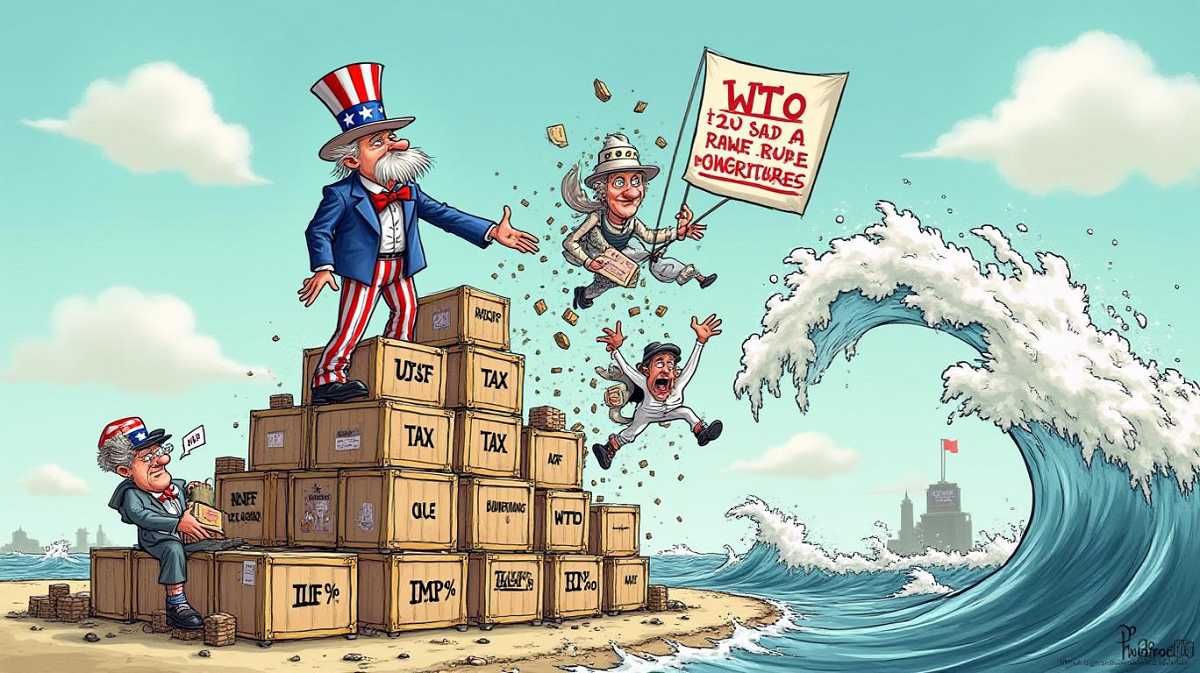AI MemeLab | U.S. Tariff Tactics Spark Global Economic Unrest and Anti-Globalization Wave
Recent U.S. tariff policies have raised concerns over their potential impact on global economic stability. The notion of reciprocal tariffs implemented by the U.S. government involves levying a 10% base tariff on all imports and imposing higher tariffs on imports from countries with significant trade deficits with the U.S. This approach masquerades as a fair trade tactic but effectively serves as a unilateral coercive tool threatening global economic cooperation and exacerbating economic uncertainties.

A domino effect of economic disruption has been triggered worldwide by the weaponization of tariffs by the U.S., contributing to a wave of anti-globalization. The International Monetary Fund (IMF) recently lowered its 2025 global growth forecast to 2.8%, citing the potential consequences of trade tensions and policy unpredictability stemming from these tariffs. Advanced economies such as the U.S. and the Eurozone are also anticipated to experience slower growth rates.
The World Trade Organization (WTO) further projects a decline in global trade volumes due to current tariff conditions. Specifically, goods trade may shrink by 0.2% in real terms in 2025, with North America facing a notable reduction in trade activity. Additionally, service trade growth is anticipated to cool, comprehensively identifying the negative repercussions of increased tariff measures.
These tariffs are also poised to exacerbate fears of supply chain disruptions, undermining global industrialGIC-- chains. By aggressively manipulating tariffs, the U.S. risks reshaping supply chains according to safety priorities rather than economic efficiency, potentially leading to increased costs and resource misallocations for global enterprises.
Moreover, the reciprocal tariff strategy has been widely condemned for jeopardizing established international trade practices, particularly the WTO's fundamental principles such as non-discrimination and most-favored-nation treatment. These measures challenge the foundational rules governing economic interactions, eroding the system that ensures global trade fairness and predictability.
Domestically, the protective façade of the U.S. tariffs is dissipating under economic scrutiny. The tariffs have inflated costs for American consumers and contributed to a slowdown in economic growth, putting upward pressure on inflation. Recent studies indicate higher consumer prices and a declining GDP growth rate, illustrating how these policies may ultimately boomerang against U.S. economic interests.
Turning market noise into visual signal.
Latest Articles
Stay ahead of the market.
Get curated U.S. market news, insights and key dates delivered to your inbox.



Comments
No comments yet